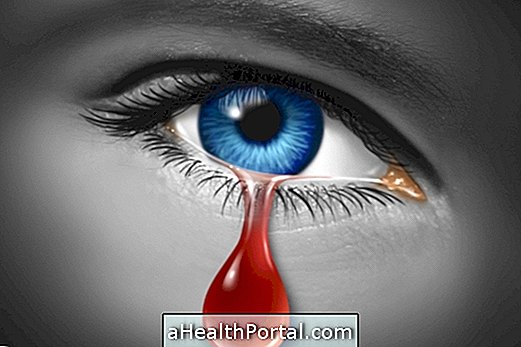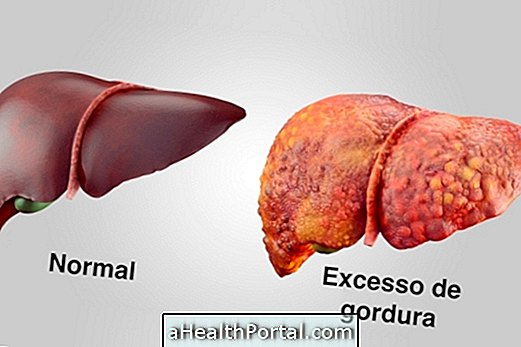Sexual abuse occurs when a person sexually caresses the other without his or her consent or forces her to have sexual intercourse with her using emotional means and physical aggression. During the act the abuser can insert his or her sexual organ, fingers or other objects into the intimate region without the consent of the victim. Other characteristics of a sexual abuse are when the victim:
- You do not have the capacity to perceive the act as an aggression, because you are a child and are not old enough to understand what is happening or to have some physical disability or mental illness;
- She is drunk or under the use of drugs that cause the victim not to be in his perfect judgment and can say to stop.
Other forms of sexual abuse are when a person forces the other to caress their genitals or to engage in sexual conversations, watch sexual acts or obscene performances, shoot or take pictures of the naked victim to show to others.
The main victims of these abuses are women but homosexuals, adolescents and children are also frequent victims of this type of crime.

Signs that may indicate sexual abuse
The victim who was sexually abused apparently may not present any physical signs, however, the vast majority have the following signs and symptoms:
- Change in behavior as occurs when the person was very extroverted, and becomes very timid;
- To flee from social contact and prefer to be alone;
- Easy crying, sadness, loneliness, anguish and anxiety;
- When the victim is a child, she may even fall ill or escape contact with others;
- Swelling, redness, laceration or fissures in the intimate parts;
- Hymen rupture in girls and women who were still virgins;
- Loss of urine and stool control due to emotional factors or looseness of the muscles in this region due to rape;
- Anal or vaginal itching, pain or discharge;
- Purple markings on the body and also on the intimate parts;
- Sexually transmitted diseases.
In addition, girls or women may become pregnant, and in this case legal abortion may be used, provided that a sexual abuse report is issued.
To prove abuse and the right to abortion, the victim must go to the police and tell what happened. As a rule, a woman should carefully observe the victim's body for signs of aggression, rape, and it is necessary to perform a specific examination to identify the presence of the sperm's secretions or spermatozoon in the victim's body.
It is best that the victim does not bathe and do not wash the intimate area before going to the police station so that the secretions, hair, or traces of nails that can serve as evidence to find and incriminate the aggressor are not lost.
Dealing with sexual abuse
In order to deal with the harmful consequences of sexual abuse, a rape victim must be supported by the closest people he or she relies on, such as family, family or friends, to recover emotionally and within 48 hours should go to the police station to register the complaint of what happened. Following this step is very important so that the abuser can be found and tried by preventing the abuse from happening again with the same person or with others.
Initially the person who is being raped must be observed by a doctor to perform tests that can identify lesions, STDs or possible pregnancy, and may need to use medications to treat these situations. Also, calming and antidepressants can keep the victim calm so that they can recover.
In addition, the emotional trauma caused by the abuse should be treated with the help of a psychologist or psychiatrist because the act leaves many roots of mistrust, bitterness and other consequences that undermine the person's life in every way.

Physical and emotional consequences of rape
The victim always feels guilty for the violation and it is common to have feelings like 'Why did I date him?' or 'Why did I piss that person off or let her get close?' However, despite the society and the victim herself feel guilty, it is not her fault, but the perpetrator.
After the act, the victim may have deep marks, frequent and repetitive nightmares, low self-esteem, fears, phobias, distrust, difficulty in relating to others, difficulty in eating disorders such as anorexia or bulimia, use of drugs to escape from reality and not suffer, suicide attempts, hyperactivity, aggression, low school performance, compulsive masturbation that can even injure the genitals, antisocial behavior, hypochondria, depression, difficulty expressing their feelings and to relate to parents, siblings, children and friends.
How to deal with the trauma caused by rape
The victim should be supported by family and friends and should not be attending school or work away from these tasks until he / she recovers physically and emotionally.
In the first phase of recovery, with the help of a psychologist the victim should be encouraged to acknowledge their feelings and the consequences of the violation, which may be living with AIDS or an unwanted pregnancy, for example.
Two other strategies to deal with the consequences of a sexual violation are:
Remedies to calm and sleep better
The use of tranquilizers and antidepressants such as Alprazolam and Fluoxetine can be indicated by the doctor or psychiatrist to be used for a few months so that the person is calm and can sleep with a restful sleep. These remedies can be used for long periods until the person feels better and keeps the emotions controlled even without them.
See natural solutions to calm down in 7 tips to control anxiety and nervousness.
Techniques to increase self-esteem
The psychologist may indicate the use of certain techniques such as seeing and speaking with the mirror, saying compliments and words of affirmation and support so that this helps to overcome the trauma. In addition, other techniques can be used to increase self-esteem and psychotherapeutic treatments so that the victim can fully recover, although this is a time-consuming process that can take decades to reach.

What leads to sexual abuse
It may be difficult to try to understand what goes on in the abuser's mind, but sexual abuse can be caused by a psychological outbreak and other factors such as:
- Trauma or injury to the anterior brain, an area that controls sexual impulses;
- Use of drugs that damage the brain and surface sexual and aggressive impulses, as well as impede morally correct decision-making;
- Mental illnesses that cause the abuser to not see the act with abuse, nor feel guilty for the acts committed;
- Already have been victims of sexual abuse throughout life and have a confused sex life, far from normal.
However, it must be emphasized that none of these factors justify such aggression and every aggressor should be penalized.
In Brazil, the offender can be arrested if it is proven that he is the perpetrator of abuse, but in other countries and cultures the punishment varies from stoning, castration and death. Currently, there are bills that try to raise the sentence for the perpetrators, increasing the prison time and also the implementation of chemical castration, which consists of the use of drugs that drastically reduce testosterone, preventing erection, which makes sexual intercourse impossible over a period of up to 15 years.





















